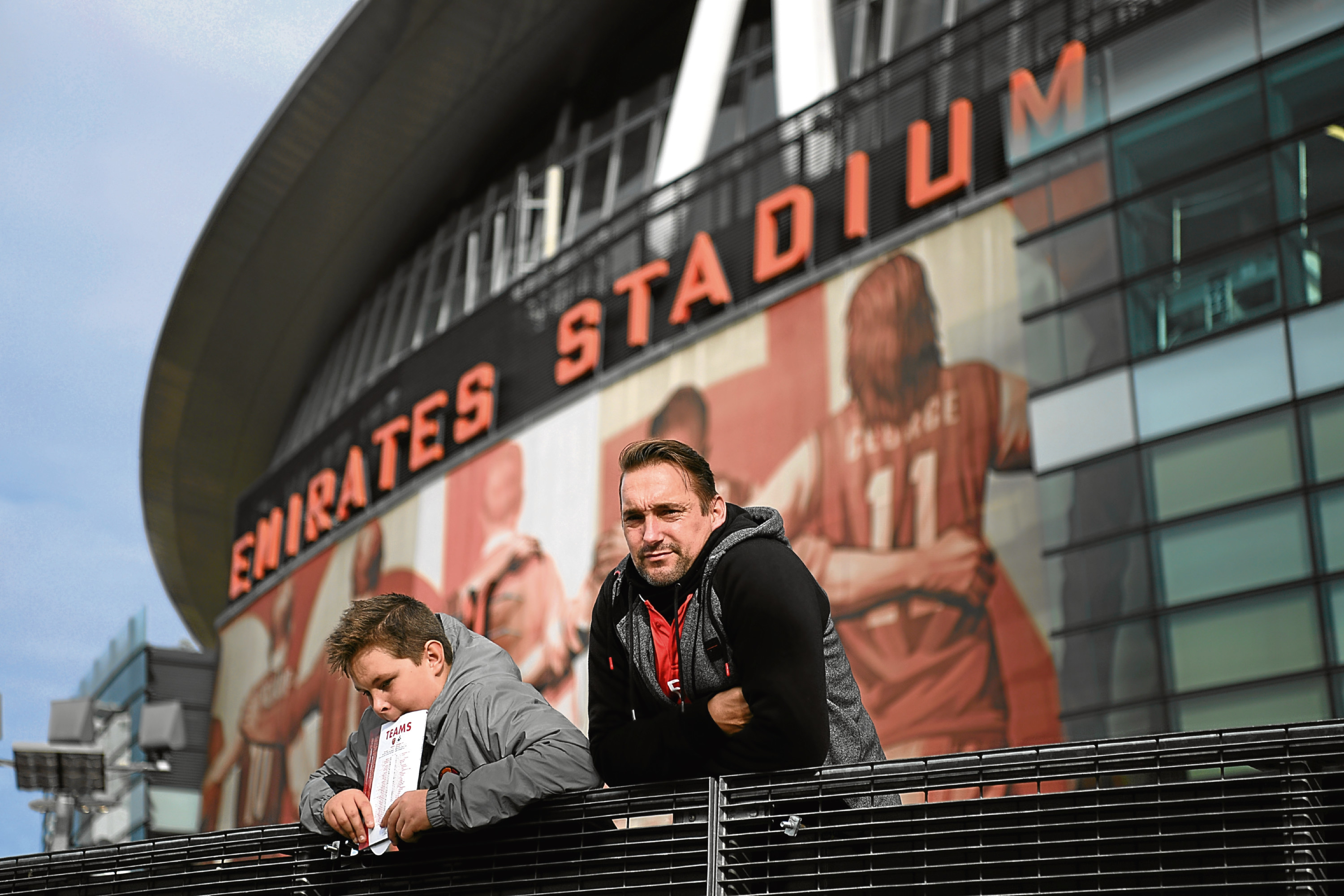
NOT many things are getting cheaper these days.
So English Premier League clubs should be applauded for freezing – or slashing – more than 80% of ticket prices this season.
Credit where it’s due. It’s a step in the right direction.
But when four out of five young adults still can’t afford to watch their teams on a regular basis, it’s clear that more needs to be done.
The top tier of English football is still too expensive for the average punter.
And, as far as I’m concerned, that’s a disgrace – because TV cash has made income from the gate near enough irrelevant.
It’s a different story in Scotland, where clubs aren’t handed fortunes by the likes of Sky and BT Sport.
Even at Celtic and Rangers, ticket sales make up a fair proportion of income.
Ask clubs like Aberdeen, Hibs and Dundee, and it’s even more important.
But for England’s top clubs, ticket income is a drop in the ocean.
When the club that finishes bottom of England’s top flight is raking in nearly £100m from broadcasters, slashing ticket prices for the average punter should be a no-brainer.
I’m not talking about hospitality-level prices – they are taken up by people who can afford to pay fortunes.
If a business wants to spend £50,000 every year for a box at the Emirates, then fair play – Arsenal should take the money.
But a standard seat behind the goal, where a father might take his kids, should be far more affordable.
The Gunners – whose individual match prices are notoriously high – currently charge non-members £65.50 for a seat in the front rows behind the goal for big games, with no concessions for youngsters.
Kids prices are available in the family section – but both adults and kids have to be members. That costs £15 for each child and £34 for the adult. Then big-game tickets cost £64 for adults and £24 for kids.
I’ve got three girls who weren’t into football, but if I’d had three boys, taking them to see Arsenal for a game could cost £79 in membership fees and £136 in ticket money.
To be fair to the Gunners, they have done good work on pricing their season tickets more attractively.
But, for ordinary working people, forking out upwards of £200 for an afternoon at the football is impossible – and they shouldn’t be expected to do it.
Every English Premier League club these days has players earning something in the region of £100,000 a week.
Ordinary punters – who might take four or five years to earn that much money – shouldn’t be expected to contribute as heavily as they are being asked to.
Young adults aged 18-24 – the group where four out of five say cost is a barrier to their attendance – need special attention, too.
Why? Because if you don’t get into the habit of going to the football when you’re young, you may never get into it at all.
Full stadiums are attractive, they are a part of what has made the English game such a sellable product over the years.
But unless clubs act to widen access, the few empty seats you see dotted around are going to turn into sweeping sections.
In the short term, clubs aren’t going to feel any difference, financially, which is exactly why they should lower prices.
Because in the long run, if people have to look for other ways to fill their time, tempting them back might just prove impossible.

Enjoy the convenience of having The Sunday Post delivered as a digital ePaper straight to your smartphone, tablet or computer.
Subscribe for only £5.49 a month and enjoy all the benefits of the printed paper as a digital replica.
Subscribe